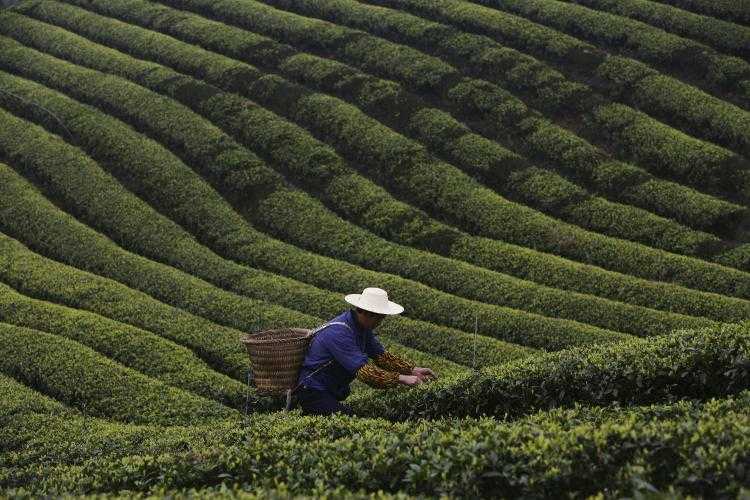Neighbor Ma Jiaying also worries about the lower prices, but he’s confident they will bounce back.
The 48-year-old father of two has grown coffee beans for nine years, primarily for Nestle. Every Monday and Tuesday, the company sends Ma and other farmers a text message alerting them of prices. They are free to decide whether to sell their beans.
When coffee prices surged in 2010, Ma made nearly $15,000 for the year, more money than he had ever seen in his life. He used his extra cash to build a new home.
“This year, tea may be more profitable than coffee,” said Ma, wearing flip-flops and rolled-up gray slacks. “But I don’t want to switch back. You can’t predict where prices are going to go.”
Few have profited more from Yunnan coffee than Liu, the founder of Ai Ni Coffee.
The son of subsistence farmers, Liu grew up 300 miles from Pu’er in a remote mountain village with no electricity or running water. Two of his siblings died of malnutrition. No one thought to brew the coffee that grew nearby. Instead, they ate the berries as a sweet snack.
After earning a university degree in agricultural studies in 1986, Liu joined a United Nations program in Yunnan aimed at developing coffee farming. The crop had helped Vietnamese farmers earn a living after the Vietnam War. Organizers hoped it would have a similar effect in Yunnan, which remains the second-poorest province in China.
The experience helped launch Liu’s export business, which he briefly headquartered in Bay Shore, N.Y. Now a millionaire, Liu speaks halting English in a city largely isolated from the outside world, except for a small, single-runway airport.
That’s where Starbucks CEO Howard Schultz landed in 2010 to negotiate a deal with Liu to produce coffee in Pu’er. Liu likes to show off a photo of the American executive visiting his processing plant.
“My parents were growing rice, corn and sweet potato to survive,” said Liu, a stout, highly energetic man. “They never would have believed that I would one day grow luxury coffee.”
Source: latimes


















